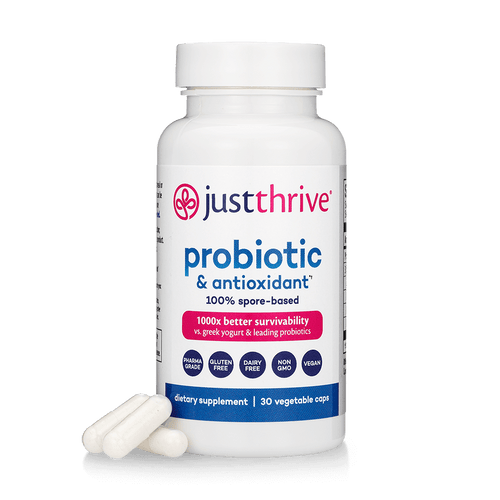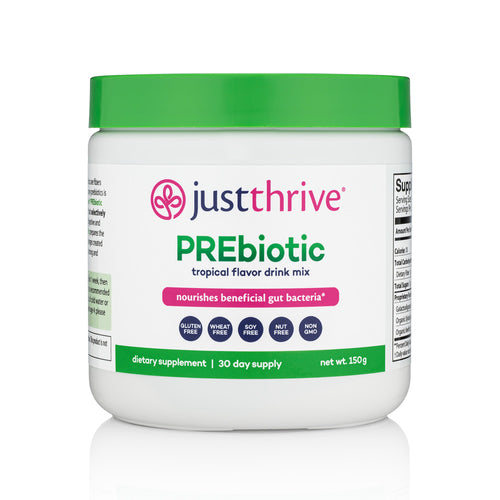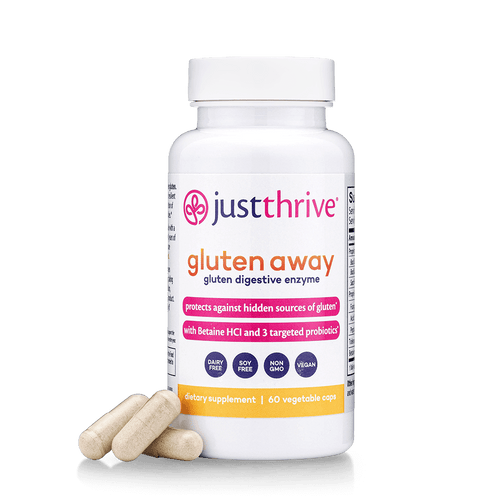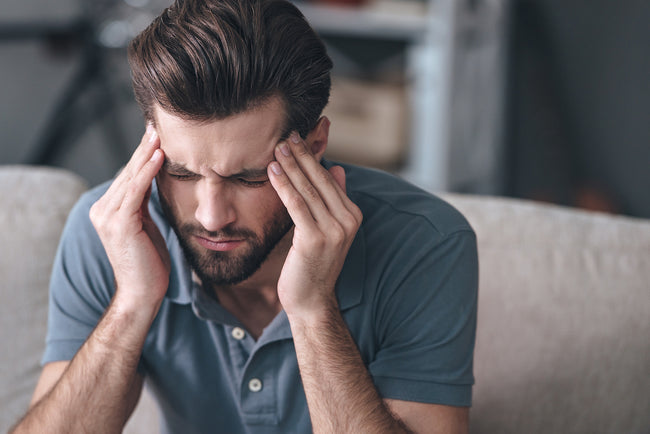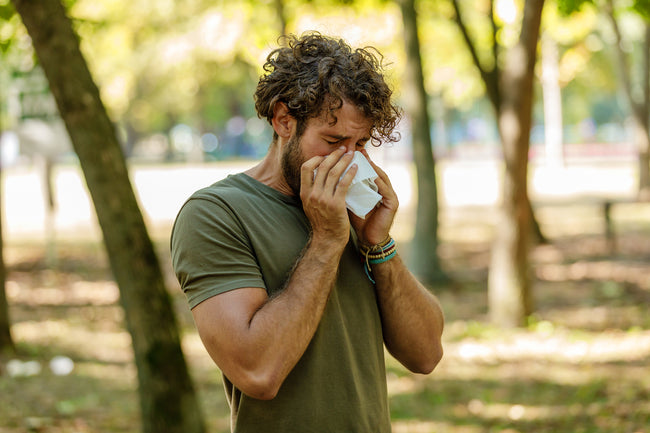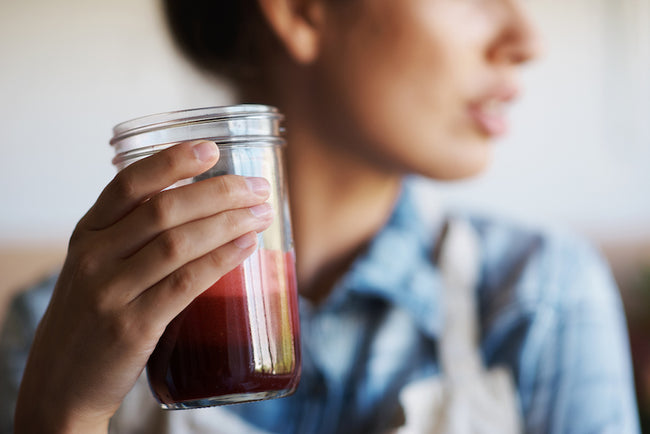You just had lunch and you need to get back to the rest of your day… But you’re suddenly so tired it’s hard to keep your eyes open.
You have to find a way to stay awake and keep going, so perhaps you turn to another cup of coffee, or a quick walk outside… Or maybe even a George Costanza nap under the desk.
But have you ever wondered – “Why do I feel so sleepy after I eat?”
While it’s normal to feel an occasional energy dip after a meal, a full-on “food coma” could be a sign that you need to make some changes.
5 Reasons You’re Wiped Out After a Meal
The medical term for feeling sleepy after you eat – Postprandial somnolence – can make it hard to get through the day. Fortunately, figuring out your tired “triggers” can help you sidestep that post-meal slump.
Here are five reasons you could be feeling so tired after eating:
- What you eat: Meals high in starchy carbohydrates and sugar can make you more tired than vegetables and healthy fats. (1) That means eating a turkey sandwich, spaghetti and meatballs, or fried chicken with French fries has the potential to easily knock you out. Alternatively, a big salad with olive healthy fats like oil, avocado, or nuts can keep your body fueled without draining your tank. (2)
- How much you eat in a single meal: It can take up to 40 hours to digest a single meal… so your body is almost constantly working on digestion. Adding a huge meal into a system that’s already busy can cause a backlog that results with you feeling sleepy.
- Your overall sleep quality: If you’re not getting enough sleep or if your sleep quality is poor, something that would normally make you a little tired can wipe you out. That includes eating a meal, especially if it’s a larger meal laden with carbs and protein.
- Food-related hormones: Your body produces a hormone called orexin to regulate appetite and wakefulness. (3) After you eat, orexin levels drop which can make you feel less energized and more tired. Also, high-protein foods like beef, eggs, and turkey contain an amino acid called tryptophan, which increases levels of melatonin and serotonin… both of which are related to sleep. (4)
- An unbalanced gut microbiome: The trillions of bacteria in your gut can greatly impact digestion and fatigue. When your gut microbiome is out of balance, harmful pathogenic bacteria outnumber beneficial probiotic bacteria – a condition called dysbiosis. Research shows that dysbiosis can cause a wide range of discomforts including:
- Extreme fatigue (5)
- Cloudy thinking (6)
- Sleep issues (7)
- Depression and disinterest in activity (8)
- Weight trouble (9)
- Slowed or inefficient digestion (10)
- Gas and bloating (11)
Any of these factors can lead to after-meal sleepiness. And if you’re stacking things like a heavy lunch on top of a bad night’s sleep, it’s almost impossible to avoid the afternoon crash. Unless, that is, you know which steps to take to keep your energy up.

How to Dodge the Next Food Coma
There are simple, practical steps you can take to help you avoid the next post-meal slump. By incorporating these new habits into your day, you’ll have more consistent energy – and – you won’t crash right after lunch.
Lighten Up
Big plates of food can be overwhelming for your digestive system and can even spike your blood sugar and cause sluggishness.
A healthier, lighter approach will satisfy your hunger while keeping your brain fueled. Consider eating more frequent, smaller meals throughout the day rather than big, heavy plates. Many people find it easier to digest small amounts, plus, more frequent, healthier meals can help keep your energy up, helping you avoid the big-meal energy sap.
Minimize the energy-zappers on your plate.
Large amounts of refined carbs, sugar, and unhealthy fats can send signals to your brain to focus on digestion, not thinking. Even caffeine, which can give you a temporary energy boost, can also cause dehydration and lead to a crash if you have too much.
Instead, try focusing on eating whole, unprocessed foods and staying hydrated with water or good-for-you tea to keep your energy and focus steady.
Take a mental break
Like any muscle, your brain gets tired the more you work it. Rather than pushing forward, give your brain a breather.
Taking small breaks throughout your day gives your mind and body a chance to relax, which can help you feel refreshed and revitalized. Whether it's a 5 minute stretch or a few minutes spent breathing in some fresh air outside, taking some time to reset can make a big difference in your overall energy. (12)
Rebalance your gut microbiome
A healthy gut promotes digestion efficiency and nutrient absorption so you get the most out of every meal. (13) And that’s just the start of the benefits that come from having a well-balanced gut. With a healthy gut microbiome you could enjoy:
- A good night’s sleep (14)
- Easier weight maintenance (15)
- Smooth digestion (16)
- Steady energy throughout the day (17)
Skip the Next Food Coma with Just Thrive
Tired of turning to candy and caffeine to get through the afternoon? Wish you could sail through the after-lunch hours without desperately wanting to take a nap?
Keeping your gut microbiome in healthy balance can help your body digest food effectively, giving you the energy you need to get things done. And giving your gut a daily dose of Just Thrive Probiotic is a great way to get started.
Just Thrive Probiotic contains 4 clinically studied spore probiotics:
- Bacillus indicus HU36™
- Bacillus subtilis HU58™
- Bacillus coagulans (SC-208)
- Bacillus clausii (SC-109)
This proven successful squad of spore probiotics helps keep your gut microbiome in optimal balance to support digestive efficiency, abundant energy, and overall wellness.
>> Try Just Thrive Probiotic TODAY.
And remember…
All Just Thrive purchases are COMPLETELY covered by our Bottom of the Bottle, 100% money back guarantee.
That means you can give Just Thrive Probiotic a try, and if for some reason you don’t see a difference, simply ask for a full refund at any time... Whether it’s 2 weeks, 2 months or 2 years… Even if the bottle is empty!
>> Test drive Just Thrive Probiotic 100% risk free.
References:
- Lehrskov LL, Dorph E, Widmer AM, Hepprich M, Siegenthaler J, Timper K, Donath MY. The role of IL-1 in postprandial fatigue. Mol Metab. 2018 Jun;12:107-112. doi: 10.1016/j.molmet.2018.04.001. Epub 2018 Apr 12. PMID: 29705519; PMCID: PMC6001918.
- Martins AJ, Martini LA, Moreno CRC. Prudent diet is associated with low sleepiness among short-haul truck drivers. Nutrition. 2019 Jul-Aug;63-64:61-68. doi: 10.1016/j.nut.2018.11.023. Epub 2018 Nov 23. PMID: 30933727.
- Chieffi S, Carotenuto M, Monda V, Valenzano A, Villano I, Precenzano F, Tafuri D, Salerno M, Filippi N, Nuccio F, Ruberto M, De Luca V, Cipolloni L, Cibelli G, Mollica MP, Iacono D, Nigro E, Monda M, Messina G, Messina A. Orexin System: The Key for a Healthy Life. Front Physiol. 2017 May 31;8:357. doi: 10.3389/fphys.2017.00357. PMID: 28620314; PMCID: PMC5450021.
- Höglund E, Øverli Ø, Winberg S. Tryptophan Metabolic Pathways and Brain Serotonergic Activity: A Comparative Review. Front Endocrinol (Lausanne). 2019 Apr 8;10:158. doi: 10.3389/fendo.2019.00158. PMID: 31024440; PMCID: PMC6463810.
- Farhadfar N, Gharaibeh RZ, Dahl WJ, Mead L, Alabasi KM, Newsome R, IrizarryGatell V, Weaver MT, Al-Mansour Z, Jobin C, Lyon D, Wingard JR, Kelly DL. Gut Microbiota Dysbiosis Associated with Persistent Fatigue in Hematopoietic Cell Transplantation Survivors. Transplant Cell Ther. 2021 Jun;27(6):498.e1-498.e8. doi: 10.1016/j.jtct.2021.02.017. Epub 2021 Feb 27. PMID: 33775619.
- Luca M, Chattipakorn SC, Sriwichaiin S, Luca A. Cognitive-Behavioural Correlates of Dysbiosis: A Review. Int J Mol Sci. 2020 Jul 8;21(14):4834. doi: 10.3390/ijms21144834. PMID: 32650553; PMCID: PMC7402132.
- Li Y, Hao Y, Fan F, Zhang B. The Role of Microbiome in Insomnia, Circadian Disturbance and Depression. Front Psychiatry. 2018 Dec 5;9:669. doi: 10.3389/fpsyt.2018.00669. PMID: 30568608; PMCID: PMC6290721.
- Capuco A, Urits I, Hasoon J, Chun R, Gerald B, Wang JK, Kassem H, Ngo AL, Abd-Elsayed A, Simopoulos T, Kaye AD, Viswanath O. Current Perspectives on Gut Microbiome Dysbiosis and Depression. Adv Ther. 2020 Apr;37(4):1328-1346. doi: 10.1007/s12325-020-01272-7. Epub 2020 Mar 4. PMID: 32130662; PMCID: PMC7140737.
- Aoun A, Darwish F, Hamod N. The Influence of the Gut Microbiome on Obesity in Adults and the Role of Probiotics, Prebiotics, and Synbiotics for Weight Loss. Prev Nutr Food Sci. 2020 Jun 30;25(2):113-123. doi: 10.3746/pnf.2020.25.2.113. PMID: 32676461; PMCID: PMC7333005.
- Singh R, Zogg H, Wei L, Bartlett A, Ghoshal UC, Rajender S, Ro S. Gut Microbial Dysbiosis in the Pathogenesis of Gastrointestinal Dysmotility and Metabolic Disorders. J Neurogastroenterol Motil. 2021 Jan 30;27(1):19-34. doi: 10.5056/jnm20149. PMID: 33166939; PMCID: PMC7786094.
- Wei L, Singh R, Ro S, Ghoshal UC. Gut microbiota dysbiosis in functional gastrointestinal disorders: Underpinning the symptoms and pathophysiology. JGH Open. 2021 Mar 23;5(9):976-987. doi: 10.1002/jgh3.12528. PMID: 34584964; PMCID: PMC8454481.
- Song BK, Kim YS, Kim HS, Oh JW, Lee O, Kim JS. Combined exercise improves gastrointestinal motility in psychiatric in patients. World J Clin Cases. 2018 Aug 16;6(8):207-213. doi: 10.12998/wjcc.v6.i8.207. PMID: 30148149; PMCID: PMC6107534.
- Krajmalnik-Brown R, Ilhan ZE, Kang DW, DiBaise JK. Effects of gut microbes on nutrient absorption and energy regulation. Nutr Clin Pract. 2012 Apr;27(2):201-14. doi: 10.1177/0884533611436116. Epub 2012 Feb 24. PMID: 22367888; PMCID: PMC3601187.
- Ogawa, Y., Miyoshi, C., Obana, N. et al. Gut microbiota depletion by chronic antibiotic treatment alters the sleep/wake architecture and sleep EEG power spectra in mice. Sci Rep 10, 19554 (2020). https://doi.org/10.1038/s41598-020-76562-9
- John GK, Wang L, Nanavati J, Twose C, Singh R, Mullin G. Dietary Alteration of the Gut Microbiome and Its Impact on Weight and Fat Mass: A Systematic Review and Meta-Analysis. Genes (Basel). 2018 Mar 16;9(3):167. doi: 10.3390/genes9030167. PMID: 29547587; PMCID: PMC5867888.
- Ramakrishna BS. Role of the gut microbiota in human nutrition and metabolism. J Gastroenterol Hepatol. 2013 Dec;28 Suppl 4:9-17. doi: 10.1111/jgh.12294. PMID: 24251697.
-
Xiao H, Kang S. The Role of the Gut Microbiome in Energy Balance With a Focus on the Gut-Adipose Tissue Axis. Front Genet. 2020 Apr 7;11:297. doi: 10.3389/fgene.2020.00297. PMID: 32318095; PMCID: PMC7154186.







